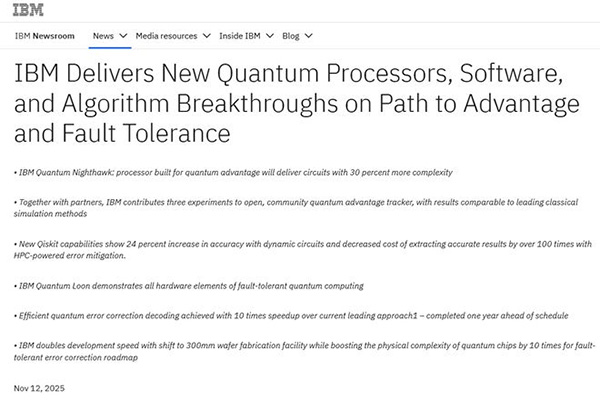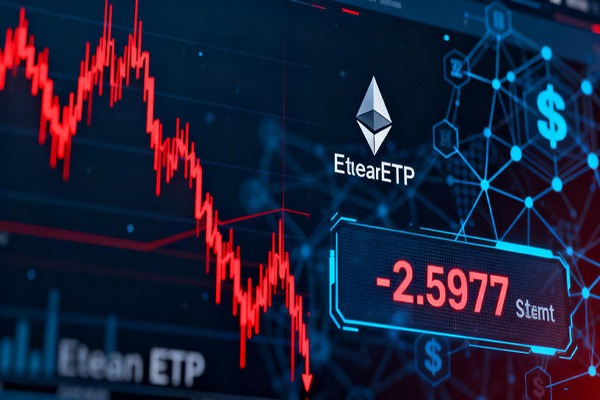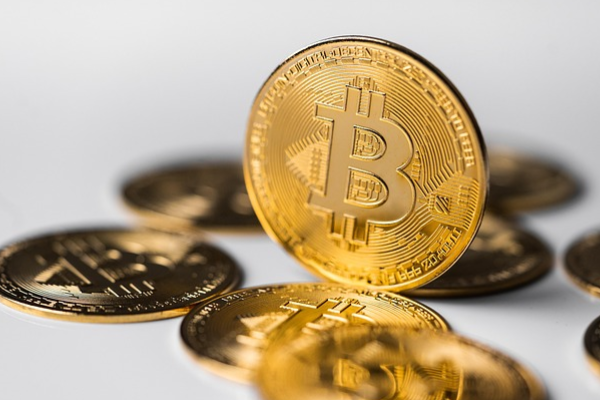Will quantum computing revolutionize technology? IBM unveils two key advantages: enhanced capabilities and greater stability!

Under current technological conditions, even with the most advanced computers, many tasks can take months or even years to complete. Developing revolutionary drugs, testing new automotive materials, and simulating how market scenarios will impact banks—these are just some examples.
But what if this timeframe could be reduced to minutes or hours? This is the vision behind quantum computing, a field researched for decades and now attracting increasing attention and investment from tech giants and startups.
On Wednesday (12th) Eastern Time, IBM announced the launch of its new quantum processor, IBM Quantum Nighthawk, and has developed a new experimental quantum computing chip called Loon. Over the past two years, Google, Microsoft, and other tech companies have also released announcements related to quantum computing.

The Nighthawk, reportedly IBM's most advanced quantum processor to date, is capable of performing more complex calculations than its predecessor and is expected to be delivered to IBM customers by the end of 2025. The company states that Nighthawk offers 120 qubits and is equipped with 218 next-generation tunable couplers, an increase of over 20% compared to IBM's Quantum Heron. However, the Loon quantum chip is still in its early stages, and IBM has not disclosed when it will be available for testing.
IBM believes that by the end of next year, Nighthawk will be able to outperform traditional computers on certain tasks and is collaborating with a group of startups and researchers to publicly share its code so that others can test its performance.
In quantum computing, photons (or light particles) are used as qubits, which, when connected together, have far greater processing power than the binary 0s and 1s used by traditional computers. Qubits can be both 0 and 1 simultaneously, existing in a superposition state, which allows them to process information much faster.
IBM states that this technology could solve problems that typically take traditional computers thousands of years to solve in minutes or hours. McKinsey & Company previously predicted that quantum computing could add $1.3 trillion in value to certain industries by 2035. Experts believe that quantum computing has the potential to make breakthroughs in fields such as cryptography, finance, science, and transportation.
Challenges Remain
However, the industry still needs to overcome a series of challenges to solve modern problems with quantum computing. For example, qubits are extremely fragile and highly susceptible to external factors such as changes in temperature or light.
IBM's Loon chip aims to address this challenge: it demonstrates that components can be used to build "fault-tolerant quantum computers" on a large scale—computers that can still function effectively even when errors occur. This is a crucial step because qubits are extremely sensitive to interference, and errors are inevitable.
Jay Gambetta, director of IBM Research and an IBM researcher, stated, "If I just shake the table, it will damage our quantum computer. Even a tiny bit of light shining in will damage it."
He also introduced the new Nighthawk, which can operate more complex "quantum gates." The National Institute of Standards and Technology (NIST) states that "quantum gates" are the "fundamental building blocks" for quantum computers to process information.
IBM predicts that future iterations of Nighthawk will achieve up to 7,500 gates by the end of 2026, and then up to 10,000 gates by 2027. By 2028, Nighthawk-based systems could support up to 15,000 two-qubit gates, thanks to 1,000 or more connected qubits.










